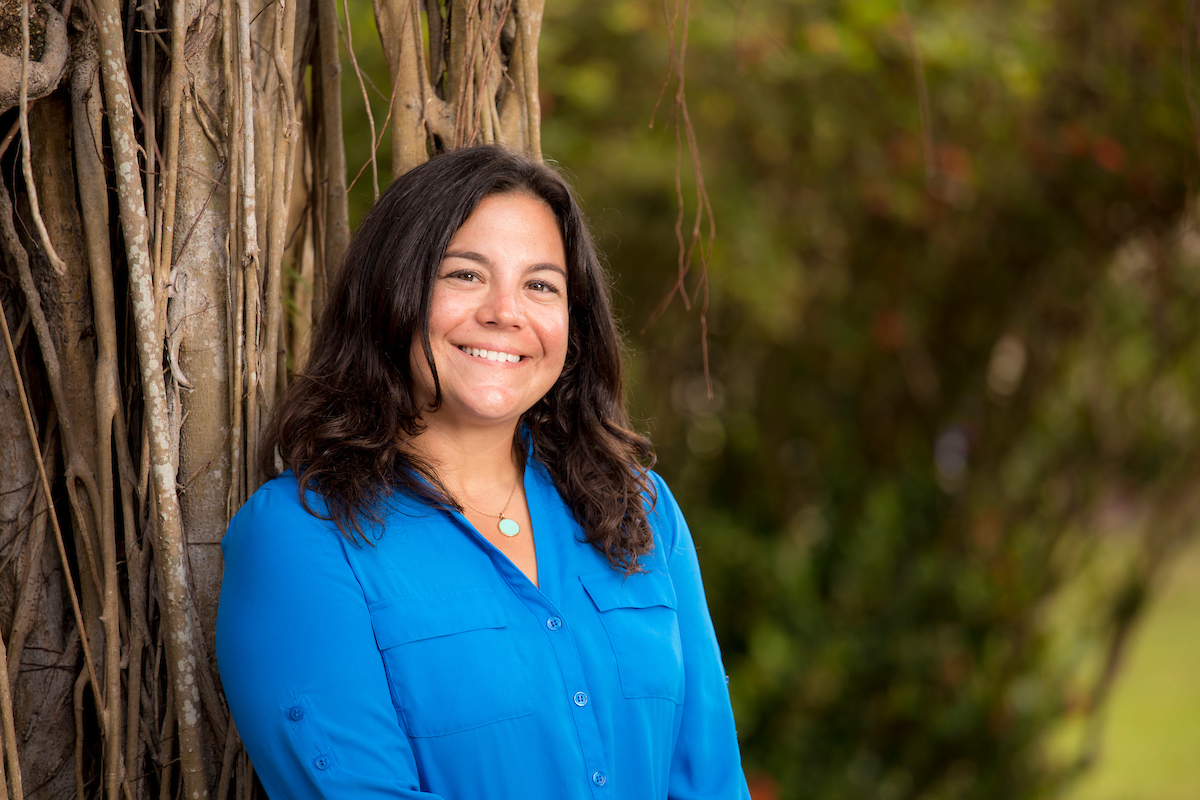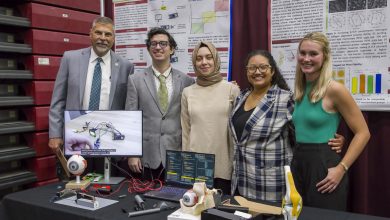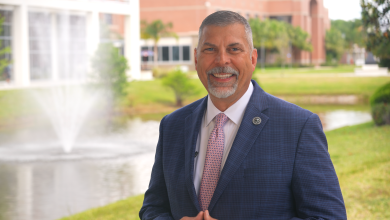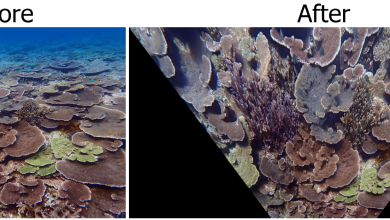Hunsucker Awarded Marine Science Educator of the Year Honor
When ocean engineering and marine sciences assistant professor Kelli Hunsucker was working on her Ph.D., she saw a want ad for an adjunct professor at what was then Brevard Community College. She applied and got the job, and that Introduction to Oceanography course is where her passion for teaching was born.
It has now bloomed into full-blown success.
Hunsucker has been recognized with the John Beakley “Marine Science Educator of the Year” Award from the Florida Marine Science Educators Association.
Given to an educator who has demonstrated dedication to promoting and developing marine science in Florida, the award started in 1986 before being renamed in 1999 in honor of Beakley, a marine science resource teacher in Palm Beach County and one of FMSEA’s founders.
Hunsucker said it was an honor it was to receive the award, which was made even more special because a former student nominated her.
“It just makes you feel really good. You don’t do what you do on a daily basis to receive recognition and awards, but you want to make a difference, and you’re hoping that what you’re doing is reaching people and making some kind of an impact,” she said. “I was very humbled when I found out that I was nominated and that I had received the award, that colleagues in the state thought highly enough of what I had done to recognize me and bestow this amazing achievement on me.”
Hunsucker has been an assistant professor at Florida Tech since 2018 and has made an impact on the university through her instruction and three main areas of research: biofouling, ecological engineering and outreach. She has been a part of research examining biofouling on ship hulls, as well as the use of ultraviolet-c light on those hulls to control fouling. She has also done research on ways to improve the water quality of the Indian River Lagoon.
The flexibility to develop programs that could stem outside of the university is one of the things Hunsucker enjoys about being a professor. This led to the opportunity to do various educational activities in and out of the classroom, such as working with the Space Coast community though the Living Docks program.
Since 2016, Hunsucker, alongside ocean engineering associate professor Robert Weaver and Florida Tech’s Indian River Lagoon research team, has partnered with the local community through the Living Docks program. The program invites residents to wrap dock pilings with oyster mats. The mats facilitate the growth of oysters, barnacles and sponges, all of which are filter feeders that help remove excess nitrogen from waters by incorporating it into their shells and tissue as they grow.
“One of the things that I absolutely love about being a professor is that you have a lot of autonomy and ability to do many different things,” Hunsucker said. “Yes, you work at the university, and you teach the undergraduates, but also the graduate students, and there’s so much opportunity for outreach. So, you’re not just working with students at that collegiate level, but you also have the opportunity to reach high school students, middle school students, community members.”
The field work Hunsucker has done with her students has also given them real-world experience that prepares them for a career. She noted a recent graduate student who worked in one of the IRL programs. Through the oyster restoration work that the student had done at Florida Tech, she is now working in Stuart, Florida, with a job that reflects some of the research she did at Florida Tech.
“So, that experience that they’re getting while they’re at Florida Tech is really helping pave a career for them, and it’s not just her,” Hunsucker said. “Other students that I’ve worked with more on the biofouling side and Navy-related projects have gone off to also have great jobs, whether in government for the Navy or at universities.”
Hunsucker hopes to continue to make an impact at the university and beyond. She has received a grant for two ocean-themed children’s books to promote literacy in kindergarten-age students. She also recently applied for a grant that would help start a program to get students from across the university involved with hands-on science- and engineering-related projects in the lagoon and offshore. She is also developing two new courses, Estuarine Ecology and Ocean Biology for Engineers.





